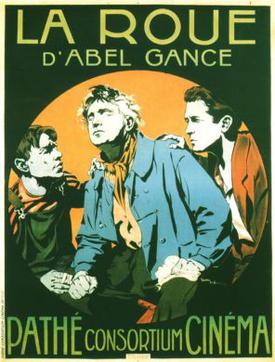The Wind (Victor Sjöström, 1928)
Only by being on Mediafilm's masterpiece list, this Silent film masterpiece was one of the film I deeply desired to watch since many years. Moreover, it is from one of the most notable Silent Film directors Victor Sjöström or as credited in the film Seastrom. Sjöström actually changed the spelling of his name for its phonetically sound and be more "Americanized". Since he is Swedish, it would be more literal English to be called Seastrom instead of Sjöström even if it's the same pronunciation. He wasn't the only European director who came from Europe to work in America with the big stars and the big studios. Famous names like Josef von Sternberg, Erich von Stroheim, F.W. Murnau, were some of the biggest names to have ever worked into Silent films. Many of their movies are considered as masterpieces. It is the same case for Sjöström and his sumptuous
The Wind.
Opening with a famous train sequence where Letty (Lillian Gish) from Virginia is going to live with her cousin in West Texas, a place where the wind blows all the time. While on the train, she meets an engaging gentleman name Roddy (Montagu Love) who tries to convince her that moving there is actually an error and that she should continue with him. The train opening strangely reminds the first scenes of Jim Jarmusch's
Dead Man where a man from the East and the city goes to the West. Arriving at destination, Letty meets up with her cousin but his wife Cora (Dorothy Cumming) doesn't like Letty and clearly is jealous of her. Our protagonist have no choice but to marry Lige (Lars Hanson), a man that disgusts her and that she didn't love. However, a test will convince Letty to see her husband in a different way and she will rethink her life choices.
It is really not often that a pure talent of storytelling is right before your eyes. In the case of Sjöström it is more than pure talent: this is a case of artistry. The brilliant composition of the film and the directing of the structured plot make
The Wind one of the major Silent films. Sjöström uses a simple and very sober
mise en scène for his film and the special effect of superposition of images gives to Letty's visions a superbly unsettling effect that Lillian Gish performs with one of the greatest performances by any actor from her time.
Thorough her career and her long life, she died at 99 years, Lillian Gish received lots of praised first by her first director D.W. Griffith then by her peers, even François Truffaut in his tribute to her and her sister Dorothy with is dedicate in
La nuit américaine. Just to name a few of her greatest performances:
The Birth of A Nation,
Broken Blossoms, and
The Night of the Hunter, were all masterpieces and she managed to be as good with Silent films as with talkies. Nonetheless, in
The Wind she was at the top of her game, the intensity of Sjöström's film needed all the fragility, ethereal beauty of the dame, her quick adaptation to the many changes in the attitude and state of mind of Letty and her fall into insanity until her complete recovery in almost one take and a continuous shot.
She was a prisoner of the desert and her containment was even worse she was obliged to marry a boorish man that only disgusts her. Until a great sand storm washed away the ghosts of her past and open her eyes to the man she never let herself appreciate. Then she found everything she was looking for in the hell she thought she was. Like a wild stallion she delivers herself from the holds that made her miserable.













